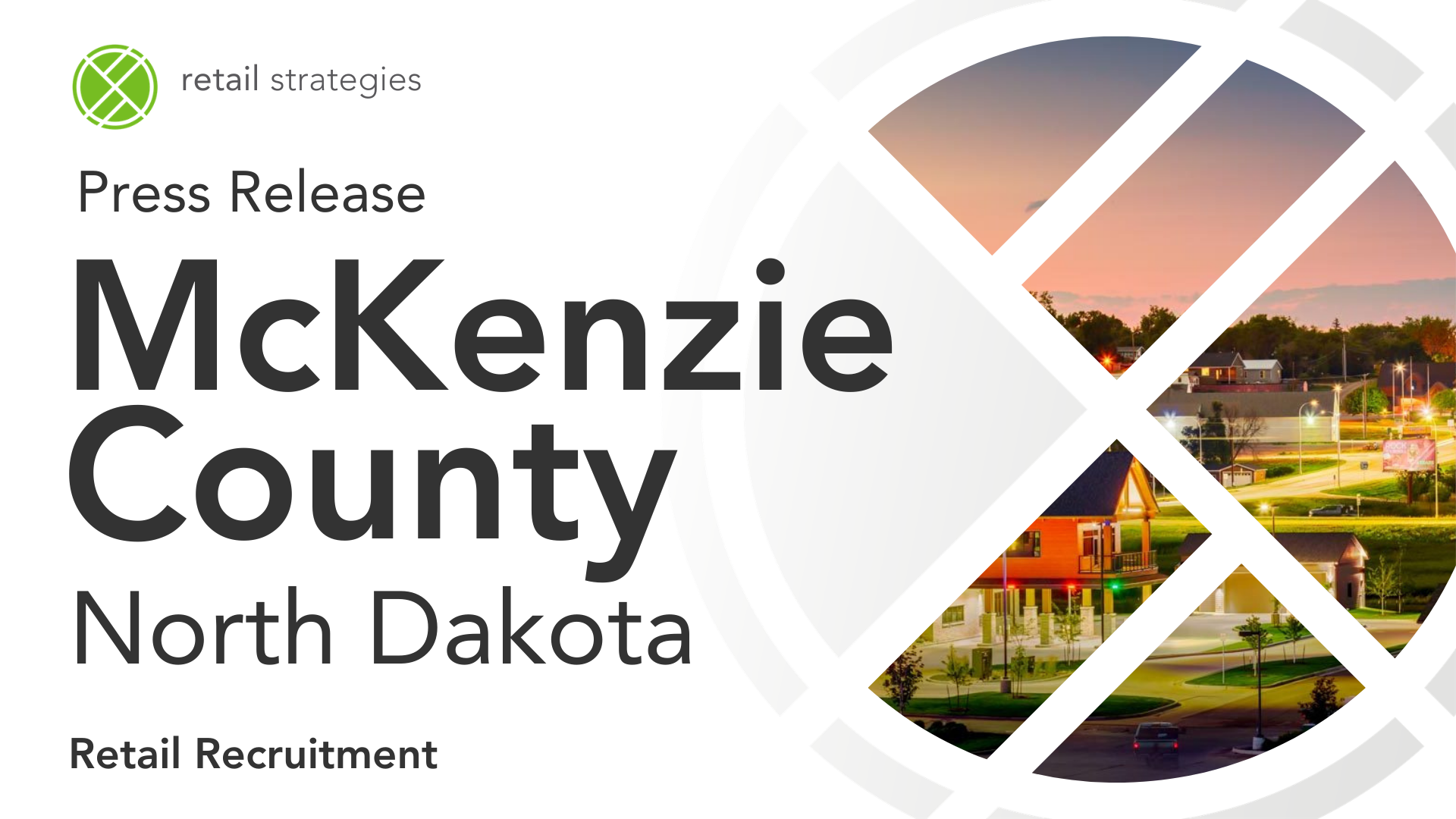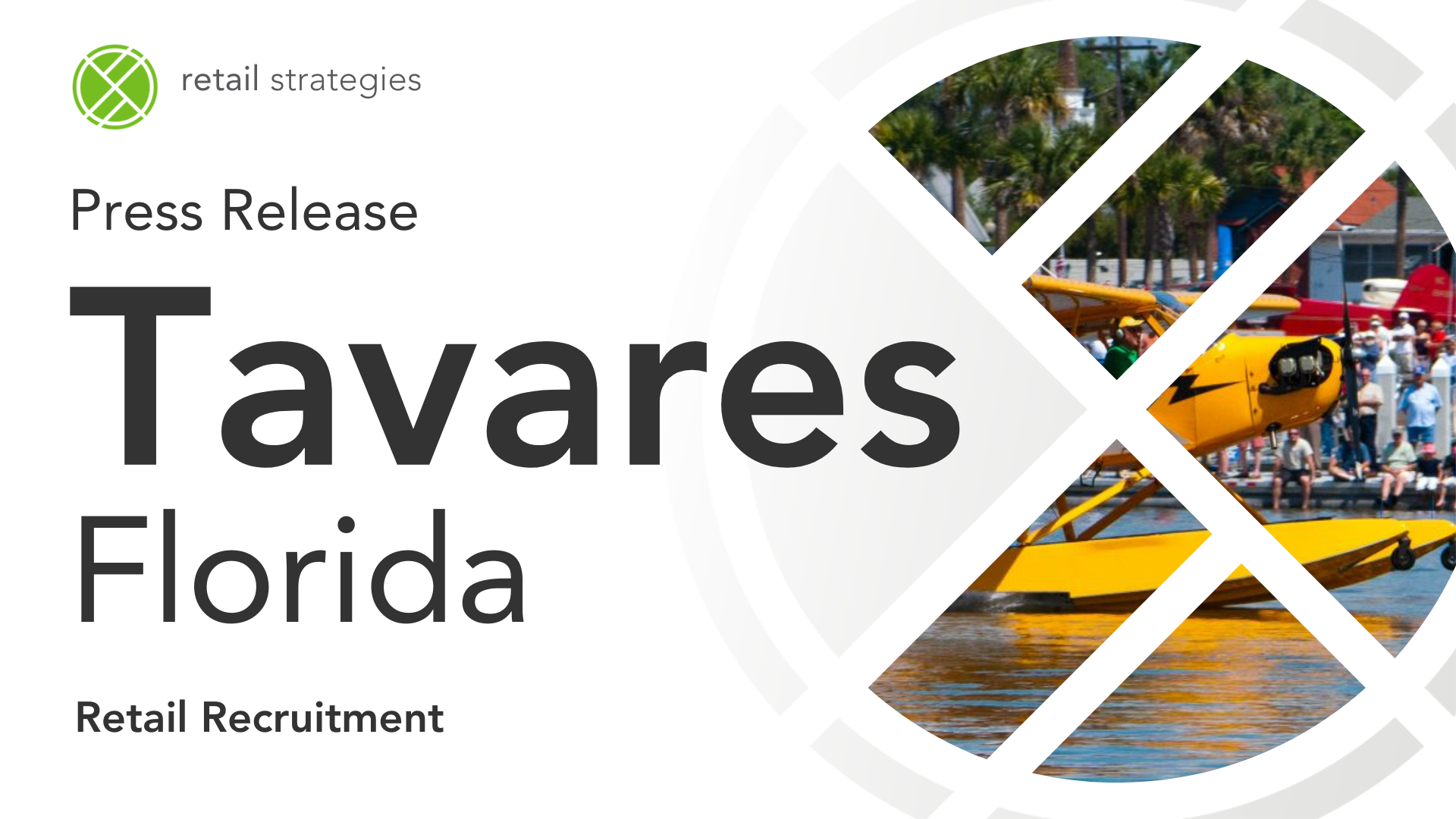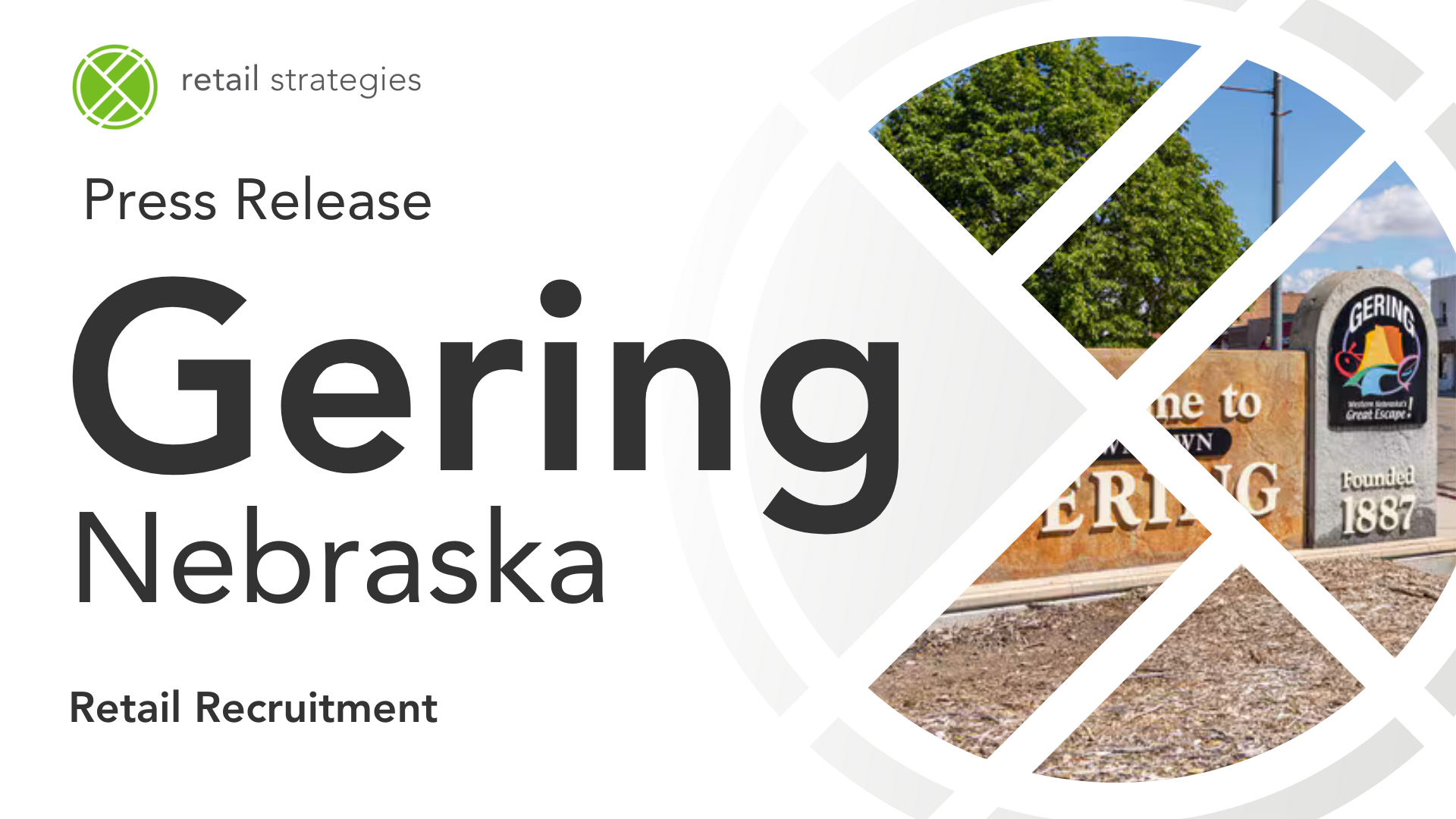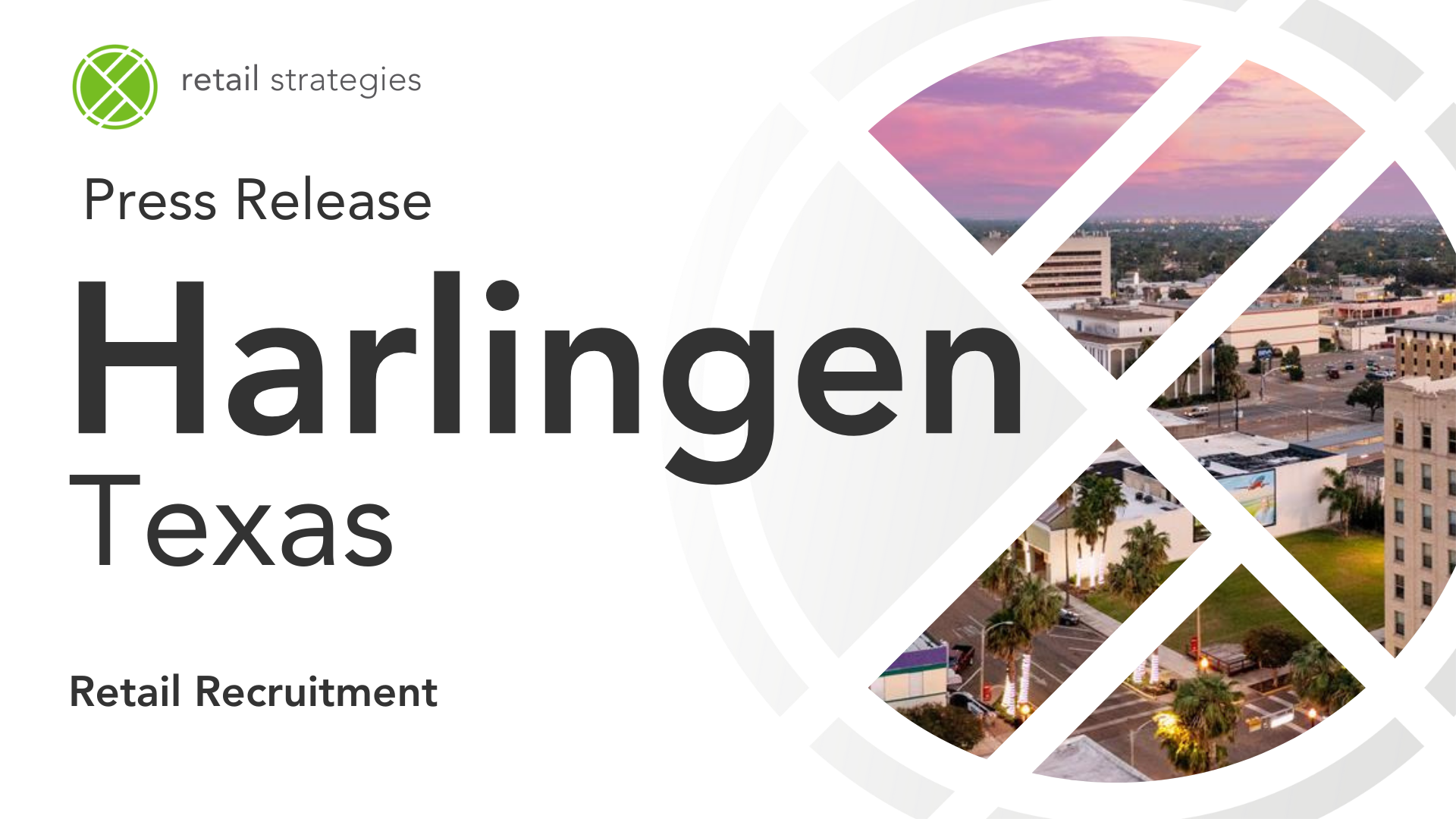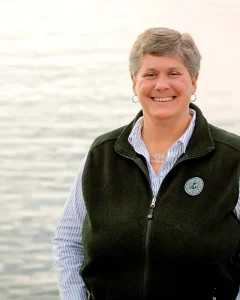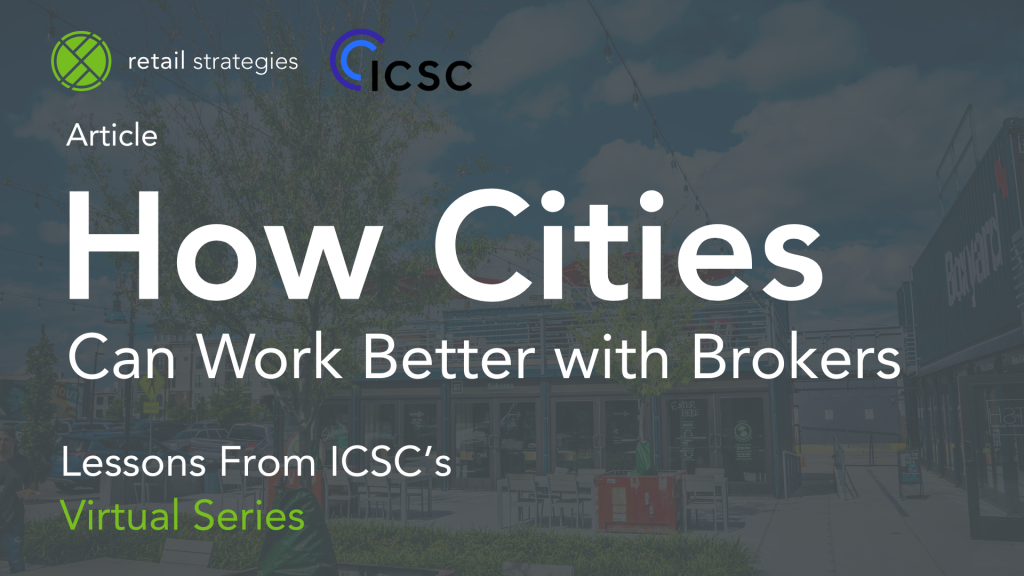
Economic developers and brokers share the same goal: stronger tax revenue, more business activity, and a healthy local economy. But the day-to-day experience of each group looks very different. That difference can slow recruitment — or, with the proper habits, make it faster.
During ICSC’s Virtual Series, Retail Strategies’ President Lacy Beasley moderated a panel of three practitioners who live this every day:
• Lash Hairston of Carolina Commercial
• Deena Zimmerman of Baum Realty Group
• Jessica Russell of Bay City Community Development Corporation
Each panelist has years of experience working on real deals. Their combined message was simple: when cities and brokers communicate well, deals happen more quickly and with fewer surprises.
Why Brokers Need Economic Developers More Than Maps
Most brokers have strong experience with retail brands and leasing, but less context about the local conditions that shape a city’s long-term growth. Aerials and demographic reports only go so far.
Economic developers hold the information that brokers cannot see:
• new housing underway but not yet on a map
• industrial announcements still in progress
• ownership changes with local landholders
• zoning updates
• road projects
• sign permits pulled before dirt moves
These details change the math for retailers. A project that looked marginal can become viable with a single housing phase or a new employer. Brokers can only evaluate this if economic developers share it.
Jessica Russell described her process in Bay City, Texas: she maintains a live list of every economic driver in the county—from small gas stations to major industrial investments. Brokers check the list often because they know it includes details they cannot find anywhere else.
The Right Way to Talk About Confidential Projects
Confidentiality came up repeatedly during the session. Cities walk a fine line between being helpful and protecting active deals. Panelists encouraged economic developers to share what they can while avoiding commitments.
A practical rule:
When in doubt, describe the user type rather than naming the brand.
Example: “A national coffee concept has pulled a sign permit in this corridor.”
This helps brokers evaluate opportunities without risking a project.
Incentives Matter — But They Aren’t Always Monetary
Many Economic Development teams think incentives only mean grants or tax rebates. The panel made clear that “help” includes:
• Assistance with permitting
• Direct introductions
• Faster communication with inspectors
• Clarifying sign rules
• Explaining zoning options
• Offering local contacts (engineers, contractors, surveyors)
These small steps often move a retailer from “maybe” to “yes.”
What Brokers Want in an Email
Every panelist agreed that outreach should be simple and short. A busy retail recruiter may look at dozens of sites per week. Clear communication earns more replies.
A good email includes:
• A subject line naming the anchor tenants
• A clean site flyer (2–3 pages)
• The size of the space or acreage
• A quick note about nearby activity
• One ask: “Would you like more information?”
Long descriptions or “here’s our fall festival calendar” usually miss the mark.
Rural Markets Are Performing Better Than Expected
One shared trend across all three speakers: small-town markets have grown faster since the pandemic. Remote workers, manufacturing projects, and new subdivisions have expanded trade areas. Economic developers who can document this with mobile data and verified analytics are changing how retailers view rural communities.
What Cities Should Do This Week
The panel closed with one practical challenge:
Call three brokers with listings in your community.
Ask them what they need. Share what’s coming.
This small step builds trust and removes friction from future deals.
What Brokers Should Do This Week
Brokers were given their own takeaway:
Answer the phone when the Economic Developers call.
They are the gateway to faster approvals, local insight, and the relationships that make expansion possible.
The Big Picture
Cities and brokers have more shared goals than differences. With clear communication, consistent updates, and the right structure, both groups can move faster — and bring stronger retailers to local communities.
If your team wants help building a recruitment plan that connects these pieces, Retail Strategies can support you with data, strategy, and outreach to active retail partners.
